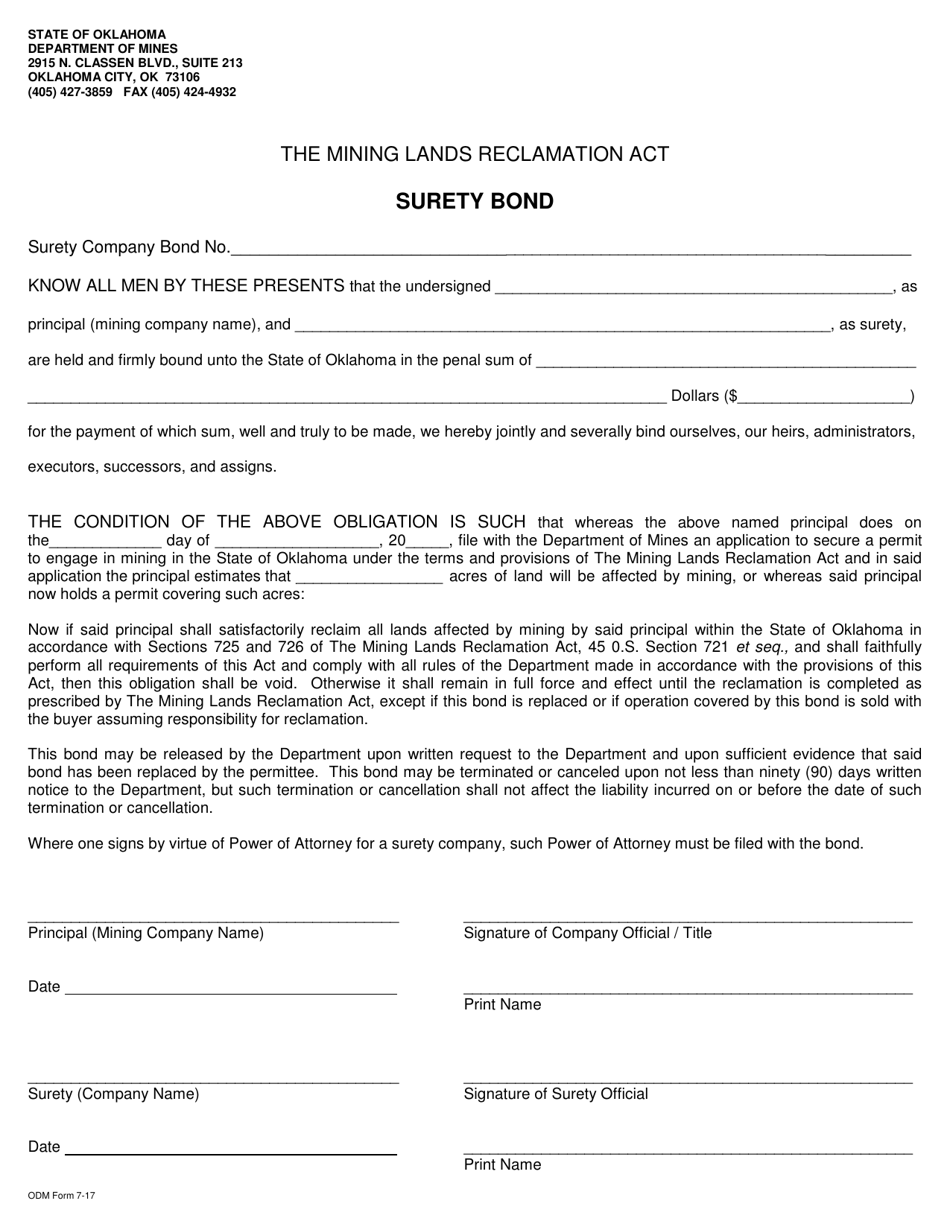

In the event that the obligee files a claim against the principal, the surety has secured a claim on the principal’s money (and/or assets) and the underwriters will expect full reimbursement for the claims paid. If a certain event occurs, a claim gets filed against the appropriate party’s insurance with no or minimal fees incurred by the policyholder if covered.īy contrast, the principal in surety bonding is expected to reimburse the surety for filled claims. The term “insured” is likely familiar to most. SBA Surety Bond Program Process (Source: U.S. In recent years, the Small Business Administration (SBA) has been active in the surety bond market to help local businesses recover from COVID-19. the government) that the task will be completed. local or state governments), while the principal can range from small businesses to commercial enterprises.įor example, local contractors can compete for government contracts by negotiating a surety contract to further assure the customer (i.e.

The obligee is most often government agencies (e.g. SBA and Small Businesses Surety Bonds Example Lastly, the term of the surety bond normally lasts between one to four years on average. The bond premium fee typically ranges from 1% to 15% of the “bonded” amount per the agreement – with the payment ordinarily paid upfront for the entirety of the term. risk of default by the principal) determines the pricing on the premium. The riskiness of serving as the surety (i.e. the local contractor) must pay a premium to the surety, who is typically an insurance company.įor protection against the worst-case scenario, surety bonds come with indemnity agreements in which the principal pledges its assets as collateral to reimburse the surety. To obtain the surety bond, the principal (i.e. Cash & Cash Equivalents, Inventory, Accounts Receivable) The maximum commitment amount that the principal can obtain from a surety is determined by its: In short, the purpose of the surety bond is to protect against losses caused by one party not meeting its contractual obligations. the “penal sum” – is the maximum amount that the surety is responsible for providing in the event of default. The set amount that the surety must pay to the obligee if the principal breaches the contract – i.e. If the party responsible for upholding the promise fails to do so, the surety assumes full (or partial) responsibility for helping the obligee recoup all or some of its total losses. Obligee: The party protected by the surety’s backing that the principal will uphold the agreement.Surety: The party backing the contractual obligation to perform the task is called the “surety,” or guarantor.Principal: The party required to fulfill a specified obligation.Surety bonds are structured to protect the lender against losses from the main borrower defaulting on its debt obligations.Īt a bare minimum, there are three parties required in a surety bond arrangement: Learn more at the Business Solutions Center.A Surety Bond is a contract among a minimum of three parties where if the principal defaults or fails to perform an obligation, a surety is obligated to fulfill a duty such as paying a certain amount. Nationwide offers small business resources to help you strengthen your business, such as financial calculators and information and articles on marketing and cash flow management. Give us a call today at (804) 346-4075 or stop by our Riggs,Counselman,Michaels & Downes office on 4200 Innslake Dr. We will assess your business and give you information on what you may want to cover. Take advantage of an On Your Side® Review to determine the insurance coverage needs of your business. We also have insurance solutions customized toward specific business types in Glen Allen such as dry cleaners, real estate, and plumbing. Other coverage types that may interest you include utility interruption, employment practices, and accounts receivable. After that, you can look at other insurance coverage options such as business interruption insurance, which can help keep your business going financially in situations such as vandalism or extreme weather. It combines property insurance, liability insurance, and other types of insurance coverage. If you are unsure how or where to start, Riggs,Counselman,Michaels & Downes may recommend that you select a businessowners policy (BOP). No business is exactly alike, and you'll want to consider factors such as your business location, how the business is run, and your target customers or clients when you assess insurance options. We want to make sure that your business has the basic coverage it needs as well as any additional coverage to fit the nuances of your situation. We at Riggs,Counselman,Michaels & Downes understand this, which is why we teamed up with Nationwide, a company with an excellent history of insuring businesses. When you are a business owner, stability is likely one of your top priorities.


 0 kommentar(er)
0 kommentar(er)
